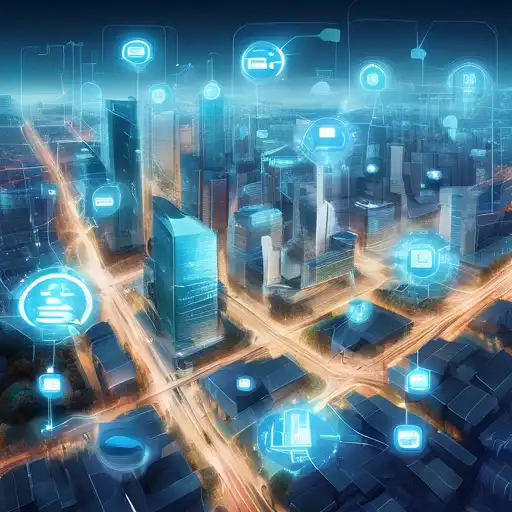Introduction to IoT in Smart Cities
The Internet of Things (IoT) is revolutionizing the way urban areas operate, making cities smarter, more efficient, and more sustainable. By connecting devices and systems across a city, IoT enables real-time data collection and analysis, leading to improved decision-making and enhanced quality of life for residents.
Key Benefits of IoT in Smart Cities
IoT technology offers numerous benefits for smart cities, including:
- Improved Traffic Management: IoT sensors can monitor traffic flow in real time, reducing congestion and improving road safety.
- Enhanced Public Safety: Smart surveillance systems and emergency response tools can help prevent crimes and respond more quickly to incidents.
- Energy Efficiency: Smart grids and IoT-enabled devices can optimize energy use, reducing costs and environmental impact.
- Waste Management: IoT can streamline waste collection and recycling processes, making cities cleaner and more sustainable.
Challenges and Solutions
Despite its benefits, implementing IoT in smart cities comes with challenges such as data privacy concerns and the need for robust cybersecurity measures. Solutions include adopting strict data protection policies and investing in advanced security technologies.
Future Prospects
The future of IoT in smart cities looks promising, with advancements in AI and machine learning further enhancing the capabilities of IoT systems. As cities continue to grow, IoT will play a pivotal role in shaping sustainable and efficient urban environments.
For more insights into how technology is transforming urban areas, explore our technology trends section.
Conclusion
IoT is at the heart of the smart city revolution, offering innovative solutions to urban challenges. By leveraging IoT technology, cities can become more livable, resilient, and sustainable for future generations.
